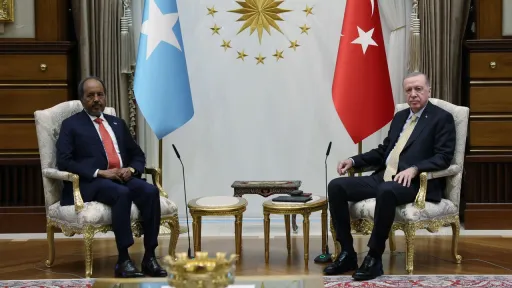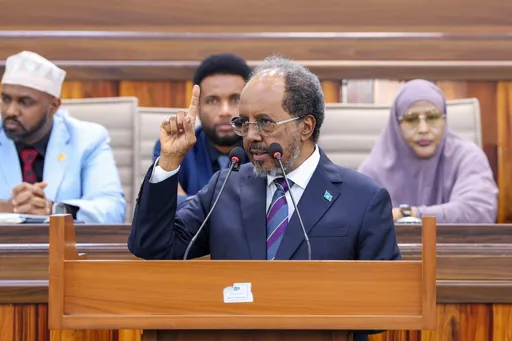By Muzhinga Kankinda
Africa has a rich and diverse audio history with topics spanning centuries across cultures. In this context, audio refers to any form of sound production, transmission and reception.
These include but are not limited to music, speech, radio, recordings, and podcasts. Generally, audio plays a vital role in African people's social, political, religious, and artistic expressions.
It also fosters their interactions with other regions and continents. The earliest form of audio in Africa is the oral tradition. It involves the transmission of knowledge, stories and values through spoken word.
Today, though rare, oral tradition is practised in many parts of Africa, especially among native and rural communities.
This includes proverbs, myths, legends, poems, songs, riddles, and anecdotes sometimes with musical instruments like drums, flutes, horns or harps.
Cultural diversity
Music is another form of audio in Africa. It is an integral part of African culture and identity as it reflects the ethnic, linguistic, geographic, and historical diversity of the continent.
In Africa, music serves various functions including entertainment, communication, education, ritual, healing, and even resistance.
Radio, a comparatively recent form of audio in Africa emerged in the early 20th century aided by colonialism and modernisation, also serving various purposes including education, propaganda, information, entertainment, and activism.
Furthermore, the medium serves as a platform for promoting cultural diversity and unity among Africans.
However, radio as a medium has also faced various challenges over the years, including censorship and competition.
On-demand content
On the other hand, the emergence of digital content formats threatens the existence of mainstream traditional media like radio.
One of these newer forms of media is podcasting. Podcasts are digital audio files that are downloaded or streamed online.
The popularity of this on-demand content media has grown in recent years. This is mainly because the audience can easily access and share stories, opinions, news and other information.
The history of the African audio industry involves sound production, reception, human creativity, and expression.
This is because African audio has shaped and been shaped by Africans' social, cultural, political and economic realities.
It contributes to the global history of sound and culture. Today, it is elating that Africans recognise the African audio industry and its creatives for their efforts through various movements.
Such movements include the Association of African Podcasters and Voice Artists (APVA), the creators of the biggest and probably the only Audio-centered Awards in Africa, namely the African Podcasters and Voice Awards, abbreviated as APVA.
The African Podcast and Voice Awards (APVA) is an annual event celebrating the best African audio content creators and their impact in Africa and beyond.
The awards support different kinds of African audio creatives, from podcasters and audio producers to voice artists and spoken word artists from Africa and the Diaspora, to showcase their work to a wider audience and receive accolades for it.
It’s important to note that the APVA awards are right on time— a time of growing popularity of podcasts.
They are also on time because they can now give relevance to the input of audio creatives in Africa to rise above the challenges of audio in the industry.
Moreover, creators and storytellers now have the opportunity, or rather a huge responsibility, to create content that is not only relevant and engaging but also showcases the diversity, creativity and excellence of African audio content.
On the other hand, APVA’s sense of community allows creatives to network, collaborate and learn from each other as audio professionals and enthusiasts.
They also stand as innovative ways of empowering, motivating, supporting and enhancing audio creatives and storytellers’ influence in the vast African media ecosystem.
This has made it easy for them to challenge the obstacles of the audio industry in Africa.
So far, the APVA Association has shown immense commitment to raising awareness and appreciation of the value and potential of audio as a medium for storytelling, education, entertainment and social change in Africa.
For example, the Association's strategies to create networking and learning communities have brought African creatives into one space for collaborations and insightful dialogues that provide data for improvement and action in the audio industry.
More than just accolades
An example of such spaces is the APVA’s Twitter spaces and award watch parties that bring many storytellers into one room to share their knowledge and perspectives on audio production.
For instance, APVA Awards 2023, under the theme “Voices of the Future”, brought audio creatives together in Zambia, Kenya and Nigeria for seasoned dialogues on the power of audio storytelling, collaboration, branding and growth.
Additionally, the idea of giving prestigious annual audio awards stands to boost the confidence of creatives and motivate them to work even harder.
Already, there have been improvements. For example, up to 2,320 podcasters, voice artists and spoken word artists were nominated for the APVA 2023 Awards.
Moreover, the voting element of the awards gives creators a sense of responsibility and care towards their audiences to create relevant and engaging content as well as strive to acquire better facilities.
Veterans and beginners
The evidence of this is the impressive content that African podcasters, poets and voice artists are creating throughout the content and beyond, from the likes of Life with Lebang Podcast, which emerged as Podcast of the Year, to the Mothers by Grace, Africana Woman, That Zed Podcast, The Tech Talk Afrika, and many more.
The APVA Awards event is not just about receiving accolades for creativity. It also drives Africa's creative industry to great heights, similar to the traditional media like TV and Film.
It enables professionals to amplify each other’s voices and stories as well as share them with the rest of the world.
It is a home for beginners and veterans to support each other. And it is a catalyst that sparks innovation and transformation in the audio industry in Africa.
The author, Muzhinga Kankinda, is a content creator from Zambia and the co-author of The Economic Case of Investing in Podcasters and Voice Artists.
Disclaimer: The viewpoints expressed by the author do not necessarily reflect the opinions, viewpoints and editorial policies of TRT Afrika.
























